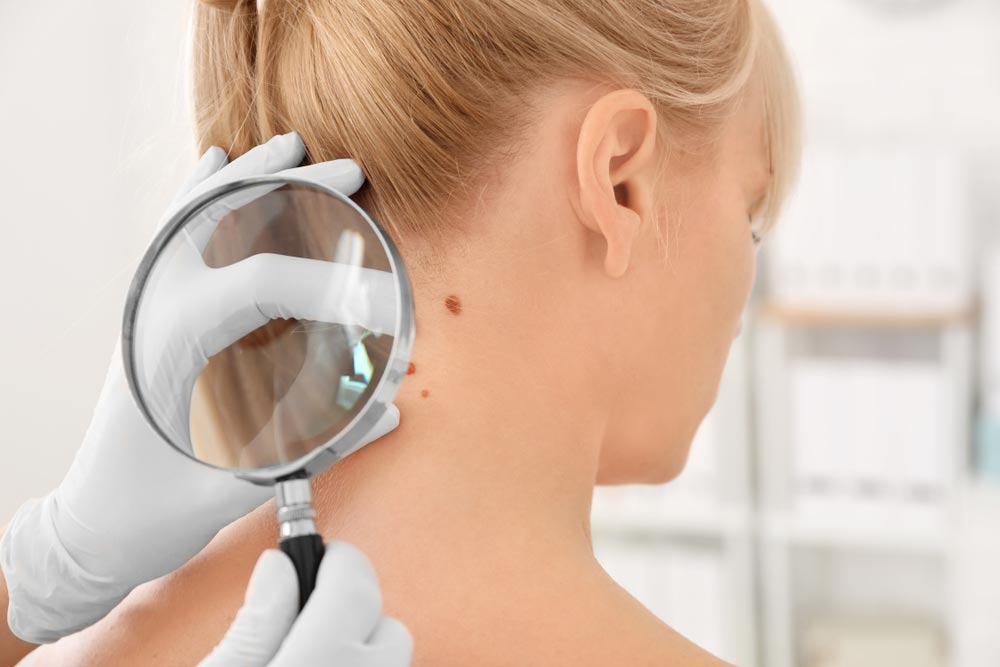How Can I Reduce My Risk Of Skin Cancer?
- Author: seoteam
- Published:
Australia’s sunny climate makes our country a great place to live, work and play. But with our sun’s strong UV rays come an increased risk of skin cancer. Australia has one of the highest rates of skin cancer in the world. Thankfully, there are lots of ways you can protect your skin and reduce your risk.

Understanding Skin Cancer
Before we delve deeper into prevention, it’s important to understand what skin cancer is. Skin cancer occurs when skin cells are damaged, often due to overexposure to ultraviolet (UV) radiation from the sun. There are three main types: basal cell carcinoma, squamous cell carcinoma and melanoma – the most dangerous form. While melanoma is less common, it’s more likely to spread and can be deadly if not caught early.
How To Reduce Your Risk Of Skin Cancer
Protect Your Skin Five Ways
The Cancer Council recommends protecting your skin from the sun’s harmful rays in five ways. To help you, remember the 5 S’s – Slip, Slop, Slap, Seek and Slide.
- Slip on some sun-protective clothing that covers as much skin as possible
- Slop on broad spectrum, water resistant SPF30 (or higher) sunscreen
- Slap on a broad brim hat to protect your face, head, neck and ears
- Seek shade whenever possible
- Slide on some polarised or UV protected sunglasses
Choose The Right Sunscreen
Not all sunscreens are created equal. When you’re at the chemist, you’ll find shelves full of different brands, all with various SPF ratings. SPF, or Sun Protection Factor, is a measure of how well the sunscreen protects against UV rays, which is the main cause of sunburn and contributes significantly to skin cancer. It’s recommended to use a sunscreen with an SPF of at least 30 that is broad-spectrum, meaning it filters both UVA and UVB rays. If possible, choose a brand that is water resistant, to increase its effectiveness while swimming and sweating.
Apply Sunscreen Properly
Using sunscreen correctly is an integral part of skin cancer prevention. Here’s how to do it right:
- Think ahead: Apply sunscreen 20 minutes before you go outdoors.
- Apply generously: A thin layer won’t provide the protection you need. For an adult, the recommended application is 5mL (approx. one teaspoon) for each arm, leg, body front, body back and face (including neck and ears). That equates to a total of 35mL (approximately seven teaspoons) for full body application.
- Don’t forget hidden spots: Don’t forget to apply sunscreen to your ears, bottom of your feet, underarms and the backs of your knees, as these places are often overlooked.
- Reapply often: Sunscreen wears off, especially after swimming, sweating, sports and towel drying, so sunscreen should always be reapplied every two hours. Sunscreen should never be used to extend the time you spend in the sun.
Be UV Index Aware
The UV index is a measure of the sun’s intensity. It can help you decide when to seek shade and when to apply sunscreen. As a rule of thumb, if the UV index is 3 or above, it’s time to protect your skin or seek shelter. The Cancer Council recommends using sunscreen every day on days when the UV Index is forecast to be 3 or above. If you want reliable, real-time UV level forecasts for locations across Australia and the rest of the world, download the Cancer Council’s free SunSmart Global UV app.
Get Regular Skin Checks
Regular skin checks can help detect skin cancer early when it’s easiest to treat. While it’s good practice to check your skin regularly at home, you should consider booking a professional skin check at a skin clinic at least once a year. Skin clinics will perform a full-body evaluation, carefully examining any suspicious skin lesions or moles. If removal or further treatment is required, they will develop a tailored plan for management and future prevention.
Book A Skin Check Today
When it comes to skin cancer, early detection is essential in achieving the best outcome. Regular skin checks are an important part of your skin cancer prevention plan. If you need a check-up, book an appointment at the Eli Waters Medical Centre’s Skin Clinic today. Our team of medical practitioners will guide you through a comprehensive skin check at one of our clinics on the Fraser Coast, carefully examining any skin lesions or moles of concern.




